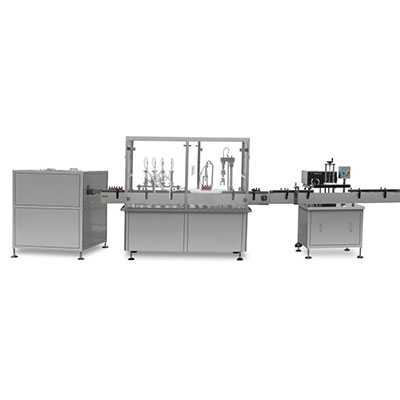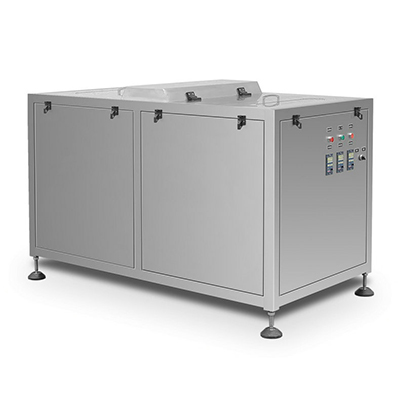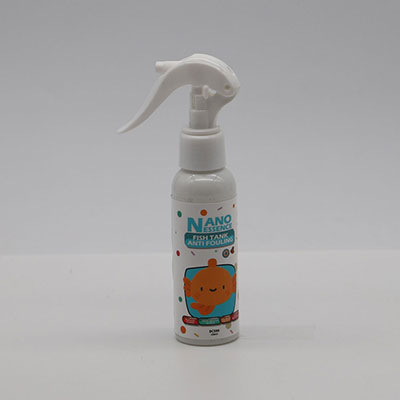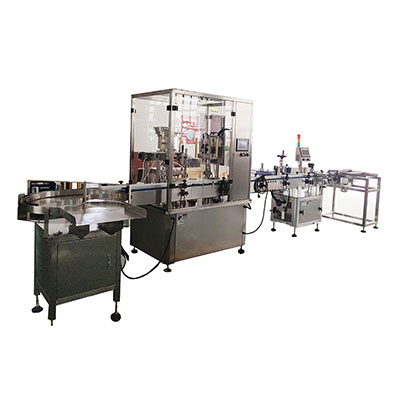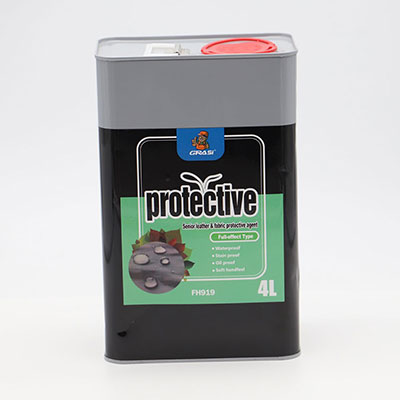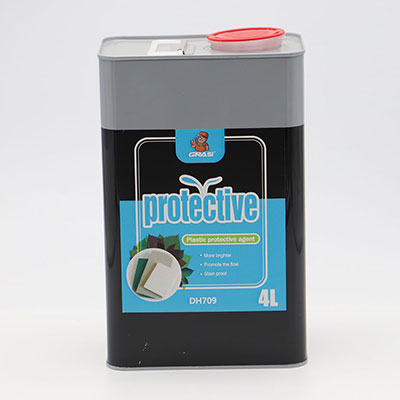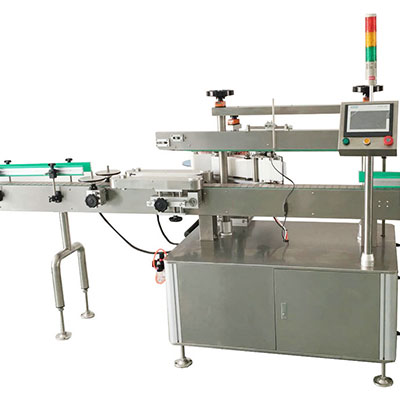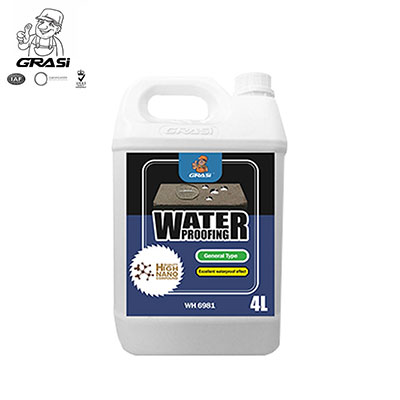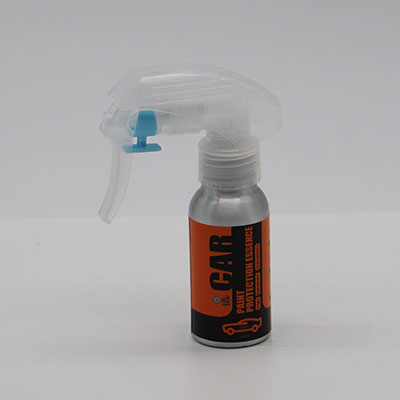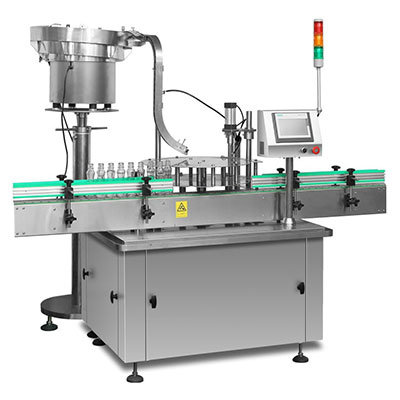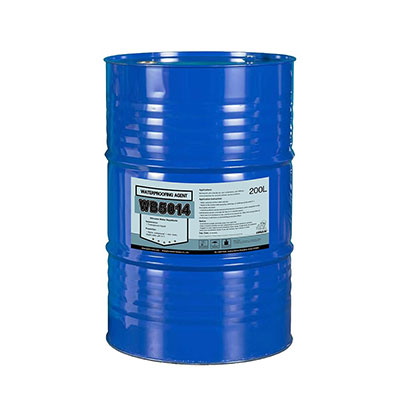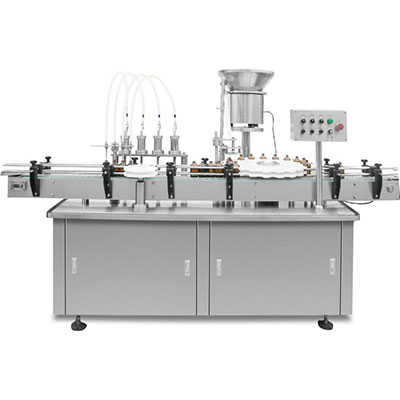Industrial Cable Manufacturer
Structure
Tight-buffered optical fiber
Inner sheath
Strength member: aramid yarn
Filler yarn: thermoplastic material
Outer sheath: polyurethane (TPU)
Description of Optical Fiber Cable for Telecommunication Base Station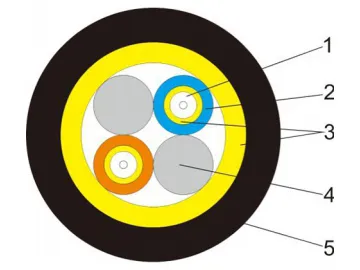
This optical fiber is primarily used as a communication method between BBU and RRU.
Optical communication room, optical connection of optical distribution frame
Long distance base station system
Parameter Technical parameter
Characteristic of optical fiber
Main machinery and environment performance
Characteristic and application
This product features a composite structure that makes use of a special coating layer and a secondary coating in order to absorb machinery and environmental stress. This ensures there is very little additional loss in the optical cable. The dry core cable structure makes it easy and convenient to connect and install, and it can be branched halfway. The all-dielectric structure protects the optical fiber from electromagnetic interference. This optical cable is suitable for cabling in optical communication rooms, optical connection of optical distribution frames and some harsh environments.
Tight-buffered optical fiber
Inner sheath
Strength member: aramid yarn
Filler yarn: thermoplastic material
Outer sheath: polyurethane (TPU)
Description of Optical Fiber Cable for Telecommunication Base Station
In base station signal transmission systems, the optical cable between Building Base Band Unite (BBU) and Radio Remote Unit (RRU) is called an optical fiber cable for telecommunication base stations. The optical cable that is used to transmit signal for RRU is an optical fiber cable for RRU.

This optical fiber cable has a smaller outer diameter, and it is soft, flexible and space saving. It features outstanding mechanical properties and is suitable for use in a variety of environments, and is most often used in 3G/4G long distance telecommunication base stations.
ApplicationThis optical fiber is primarily used as a communication method between BBU and RRU.
Optical communication room, optical connection of optical distribution frame
Long distance base station system
Parameter Technical parameter
| Item | Content | Typical value | |||
| Number of cores | 2 | 8 | 12 | 24 | |
| Tight-buffered optical fiber | Material | LSZH | |||
| Outer diameter/mm | (0.6/0.9)±0.05 | ||||
| optical unit | Outer diameter/mm | 2.0±0.1 | |||
| Thickness/mm | ≥0.3 | ||||
| Strength member | Material | Aramid yarn | |||
| Filler yarn | Material | thermoplastic material | |||
| Outer strength member | Material | Aramid yarn | |||
| Outer sheath | Material | LSZH/PVC/TPU/PE | |||
| Outer diameter | mm | 3.5/5.5/7.0 | 14.0 | 20. | 23.5 |
| Operating temperature | ℃ | -40~+70 | |||
| Tensile force | Short term/long termN | 1000/500 | |||
| Flatten | Short term/long termN | 2200/1100 | |||
| *We can design the structure of optical cable according to customer requirements. | |||||
| G.652.D | G.657A2 | 50/125μm | 62.5/125μm | ||
| Attenuation | @850nm | - | - | ≤3.0dB/km | ≤3.0dB/km |
| @1300nm | - | - | ≤1.0dB/km | ≤1.0dB/km | |
| @1310nm | ≤0.36dB/km | ≤0.36dB/km | - | - | |
| @1550nm | ≤0.22dB/km | ≤0.23dB/km | - | - | |
| Bandwidth | @850nm | - | - | ≥500MHz·km | ≥200MHz·km |
| @1300nm | - | - | ≥1000MHz·km | ≥600MHz·km | |
| Fiber cutoff wavelength | ≤1260nm | ≤1260nm | - | - | |
| Polarization mode dispersion | Single optical fiber | ≤0.20ps/√km | ≤0.20ps/√km | - | - |
| Link value (M=20, Q=0.01%) | ≤0.10ps/√km | - | - | ||
| Item | Inspection standard | Procedure of inspection | Requirements |
| Pull | IEC 60811-1-1 | According to technical parameter | Additional attenuation≤0.03dB |
| Flatten | IEC 60811-1-1 | According to technical parameter | Additional attenuation≤0.03dB |
| Backward and forward bending | IEC 60811-1-1 | Load: 20N 200 times | Additional attenuation: single-mode≤0.4dB; multi-mode≤0.6dB |
| Twisting | IEC 60811-1-1 | Load: 40N 10 times | Additional attenuation: single-mode≤0.4dB; multi-mode≤0.6dB |
| Temperature recycle test | IEC 60794-1-2-F1 | -40℃ ~+70℃ | Additional attenuation: single-mode≤0.5dB; multi-mode≤0.3dB |
| Combustion performance | IEC 60332-1-2 | Fire resistance | Every single wire can be burnt vertically. |
| Density of the smoke | Light transmittance ≥50% | ||
| Corrosiveness | PH of the gas when burning≤4.3, electric conductivity≤10μs/mm | ||
| * The monitoring of all optical fiber attenuation's change is operated in wavelength of 1550nm. | |||
This product features a composite structure that makes use of a special coating layer and a secondary coating in order to absorb machinery and environmental stress. This ensures there is very little additional loss in the optical cable. The dry core cable structure makes it easy and convenient to connect and install, and it can be branched halfway. The all-dielectric structure protects the optical fiber from electromagnetic interference. This optical cable is suitable for cabling in optical communication rooms, optical connection of optical distribution frames and some harsh environments.
Scan QR to Read
Links:https://globefindpro.com/products/50012.html
Links:https://globefindpro.com/products/50012.html
Recommended Products
-
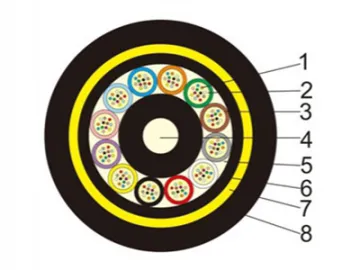 Industrial Cable Manufacturer
Industrial Cable Manufacturer
-
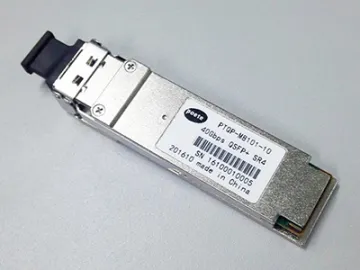 Industrial Cable Manufacturer
Industrial Cable Manufacturer
-
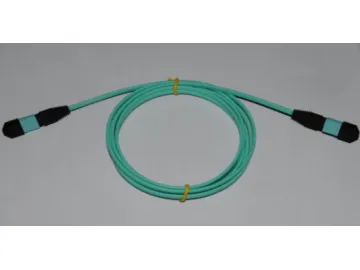 Industrial Cable Manufacturer
Industrial Cable Manufacturer
-
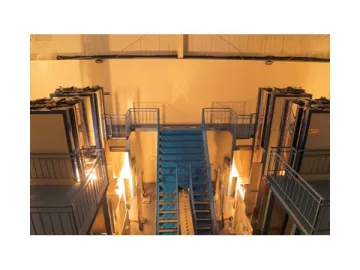 Industrial Cable Manufacturer
Industrial Cable Manufacturer
-
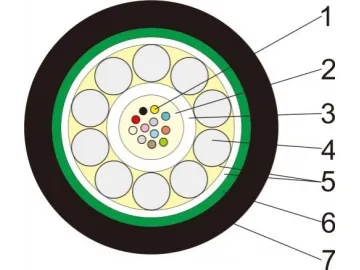 Industrial Cable Manufacturer
Industrial Cable Manufacturer
-
 Industrial Cable Manufacturer
Industrial Cable Manufacturer
-
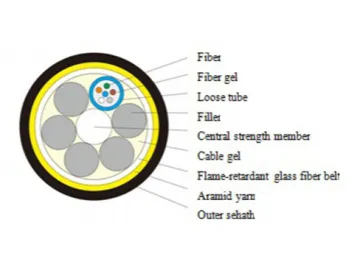 Industrial Cable Manufacturer
Industrial Cable Manufacturer
-
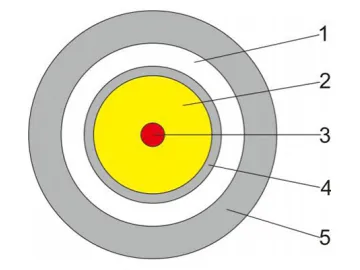 Industrial Cable Manufacturer
Industrial Cable Manufacturer
-
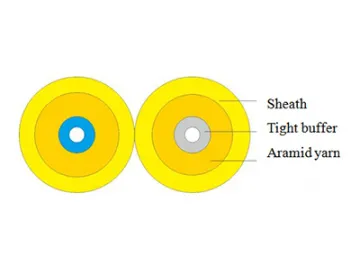 Industrial Cable Manufacturer
Industrial Cable Manufacturer
-
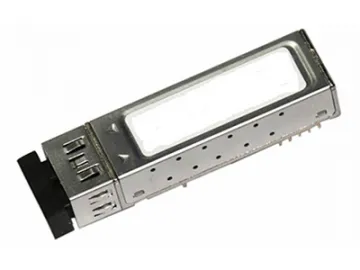 Industrial Cable Manufacturer
Industrial Cable Manufacturer
-
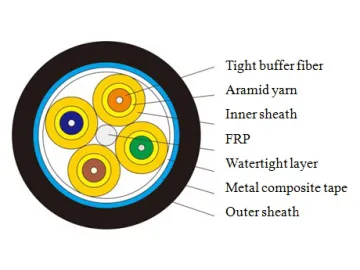 Industrial Cable Manufacturer
Industrial Cable Manufacturer
-
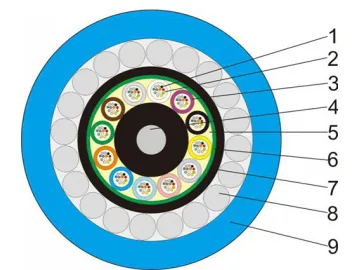 Industrial Cable Manufacturer
Industrial Cable Manufacturer
Hot Products
